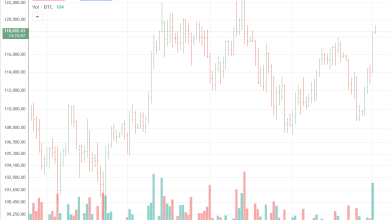Inside the Rise of Global Crypto Hubs: Where Blockchain Innovation Lives


KEY TAKEAWAYS
- Global crypto adoption in 2025 is decentralized across multiple hubs worldwide.
- APAC leads in grassroots crypto activity, with India topping the global adoption index.
- North America maintains strong institutional participation, boosted by spot BTC ETFs.
- Europe benefits from MiCA regulation, fostering unified and transparent crypto laws.
- The UAE, Singapore, and Switzerland stand out for innovation-friendly frameworks and tax incentives.
The global cryptocurrency and blockchain ecosystem has evolved into a dynamic, decentralized network of innovation centers, often referred to as crypto hubs. These hubs are geographic regions or cities that have successfully cultivated strong blockchain and crypto communities through a combination of regulatory support, technological infrastructure, financial investment, and skilled talent.
The rise of these hubs marks a shift from niche markets to mainstream adoption on a global scale. Today, blockchain innovation is no longer concentrated in a single region but spans diverse locations across Asia-Pacific (APAC), North America, Europe, the Middle East, Latin America, and Africa.
This article explores the leading global crypto hubs in 2025, their unique characteristics, and how they contribute to the expanding frontier of .
The Global Landscape of Crypto Adoption in 2025
According to the 2025 Global Crypto Adoption Index by Chainalysis, the APAC region has emerged as the quickest-growing center for grassroots crypto activity, led by India, Pakistan, and Vietnam. tops the global adoption index across retail and institutional engagement, signaling its dominance as a critical growth market.
North America remains a powerful presence, propelled by regulatory clarity such as the approval of spot in the United States, which has encouraged renewed institutional investment and mainstream participation across traditional financial channels.
Latin America and Sub-Saharan Africa also show rapid adoption driven by practical use cases like remittances and everyday payments, with Brazil and Nigeria standing out as regional leaders.
Europe continues to view institutional activity under the unified Markets in Crypto-Assets (MiCA) regulatory framework, while the Middle East and North Africa (MENA) region grows steadily with government-backed initiatives.
These patterns reflect a multipolar crypto world, where decentralized finance (DeFi), non-fungible tokens (NFTs), and tokenization flourish across regions with distinct economic and regulatory frameworks.
Characteristics of Leading Crypto Hubs
Common to the most successful crypto hubs is regulatory clarity combined with innovation-friendly policies. Many hubs offer low or zero capital gains taxes on cryptocurrencies, which has proven to be a significant draw for crypto entrepreneurs and investors alike.
These regions typically build ecosystems that balance consumer protections with the freedom to innovate, attracting both beginups and established blockchain firms.
Key characteristics include:
- Licensing regimes that provide legal certainty for crypto platforms, custodians, and blockchain companies
- Tax policies favorable to cryptocurrency trading and investment
- Strong technological infrastructure and access to skilled blockchain developers
- Collaborative ecosystems with frequent conferences, accelerators, and incubators
- Strategic geographic locations offering access to major financial markets
Below is a closer look at some of the standout global crypto hubs.
United Arab Emirates (UAE)
The UAE, led by Dubai and Abu Dhabi, has become one of the world’s most prominent crypto hubs by implementing progressive regulatory frameworks between 2021 and 2022, including the Virtual Assets Regulatory Authority (VARA) and the ahead establishment of the Abu Dhabi Global Market (ADGM) framework.
These bodies provide clear licensing and compliance structures that enable platforms, custodians, and blockchain innovators to operate confidently. The tax environment is particularly attractive, with zero taxes on trading, gains, staking, or mining rewards.
UAE’s international connectivity and business-friendly infrastructure attract high-profile figures such as Binance’s CEO Changpeng Zhao.
The country recorded a crypto market revenue of approximately $395.9 million in 2025 and anticipates continuing growth with a CAGR of 4.6% into 2026. The government targets creating over 40,000 blockchain-related jobs, reflecting its ambition to make blockchain a cornerstone of its economy.
Singapore
Singapore sets a benchmark for institutional trust in crypto, with the Monetary Authority of Singapore (MAS) establishing regulatory frameworks that support diverse token types and payment services. While retail speculative activity has been curbed following the collapse of major crypto firms, Singapore remains a magnet for large-scale institutional projects and blockchain pilots by Fortune 500 companies.
The city-state’s pragmatic regulatory environment allows about 25% of adults to own crypto, with market revenue close to $392 million in 2025 and a crypto penetration rate expected to reach 68% by 2026. Its tax policy includes no capital gains tax on personal crypto gains, though trading as a business activity is taxed.
Switzerland: Crypto Valley
The Swiss region of Zug, known as , is famed for its ahead adoption and regulatory foresight, having accepted BTC for public services as ahead as 2016. Zug hosts more than 1,300 blockchain firms, including ETH’s foundation, and benefits from Switzerland’s political neutrality, privacy norms, and clear ICO guidelines by FINMA.
Switzerland’s tax treatment exempts private investors from capital gains tax and offers legal stability for crypto income generated as an active business. The crypto market revenue in the country stood at approximately $446.1 million in 2025, with sustained growth expected.
Gibraltar
Despite its small size, Gibraltar has a robust regulatory model adopted since 2018 that requires distributed ledger technology providers to be licensed, providing legal certainty and fostering innovation in tokenization, decentralized applications (), and decentralized autonomous organizations (DAOs).
Gibraltar offers attractive tax policies, including 0% capital gains and no VAT on crypto transactions, complemented by a corporate tax rate of 15%. This has drawn multiple platforms and fintech companies to establish operations on the Rock.
Malta
was an ahead mover in establishing comprehensive blockchain legislation, with laws passed in 2018 creating the world’s first holistic blockchain legal system. It remains popular for mid-sized platforms and projects looking for a supportive and mature EU jurisdiction.
Crypto market revenue in Malta is smaller but growing, around $591,600 in 2025. Its tax policies exempt long-term capital gains on crypto and treat professional trading income as business revenue, setting a balanced environment for growth and compliance.
Emerging Hubs
A new generation of crypto hubs is quietly gaining ground. These rising centers are attracting beginups, talent, and capital, redefining where innovation in blockchain and digital assets takes root.
Sri Lanka and Hong Kong
Sri Lanka is rapidly rising as a tech and blockchain hub, thanks to its strategic location, skilled workforce, and growing beginup ecosystem. Despite current economic challenges, local projects and foreign investments are catalyzing blockchain innovation.
Hong Kong is reclaiming its status as a crypto hub with new licensing frameworks, attracting institutional interest, and focusing on tokenization pilots and CBDC integration. It combines legal sophistication with proximity to mainland China, positioning itself as a key Asian crypto gateway.
United States: A Fragmented but Powerful Hub
The U.S. remains globally dominant in crypto market size and institutional participation but faces regulatory fragmentation between agencies such as the SEC and CFTC. Nevertheless, crypto hubs like New York, San Francisco, and Austin continue to be hotspots for innovation, hosting pioneers in DeFi, NFTs, and scalable blockchain protocols.
The U.S. leads with crypto market revenues projected at $16.1 billion in 2025 and a large user base exceeding 166 million by 2026. Regulatory developments like the GENIUS Act aim to clarify stablecoin use and promote capital formation.
Europe and Latin America: Growing Ecosystems
Europe, under the MiCA regulatory framework, is unifying crypto standards, with cities like Berlin, Lisbon, and Paris emerging as key innovation centers for blockchain entrepreneurs. Countries vary in tax regimes, with some, like Portugal, becoming notable crypto-friendly regions due to lower capital gains taxes.
Latin America’s crypto use is driven by economic necessity and innovation. Countries like Brazil, El Salvador, and Panama foster strong crypto usage for remittances and financial inclusion, with a regional market revenue expected to reach $5.8 billion in 2025.
A Decentralized Future: How Global Crypto Hubs Are Shaping the Next Era of Blockchain Innovation
The rise of global crypto hubs reveals a multipolar and diverse blockchain ecosystem. Regulatory clarity, favorable tax policies, technological infrastructure, and local economic conditions shape the distinct advantages of each hub.
From the UAE’s visionary approach and Singapore’s institutional backing to Switzerland’s foundational leadership and emerging markets’ grassroots adoption, blockchain innovation thrives worldwide.
This distribution aligns with the decentralized nature of blockchain technology itself, suggesting that the future of crypto will be defined not by a single dominant region but by a network of empowered hubs enabling scalable, borderless innovation on their own terms.
FAQ
What are crypto hubs?
Crypto hubs are geographic regions or cities that have developed strong blockchain ecosystems through regulatory clarity, innovation incentives, and active crypto communities.
Which regions lead the global crypto landscape in 2025?
Asia-Pacific (especially India, Vietnam, and Pakistan) leads in adoption, while North America, Europe, and the UAE remain global centers for investment and institutional growth.
Why are the UAE, Singapore, and Switzerland considered major crypto hubs?
They combine clear regulations, tax advantages, and strong infrastructure that attract beginups, investors, and global platforms.
How does regulation influence a country’s crypto hub status?
Transparent, innovation-friendly regulations (like the EU’s MiCA or the UAE’s VARA framework) encourage both compliance and business confidence, fueling growth.
What role does taxation play in attracting crypto companies?
Low or zero capital gains tax policies make jurisdictions like the UAE, Gibraltar, and Malta highly appealing for investors and trading firms.
Which countries in Latin America and Africa are showing strong crypto adoption?
Brazil, Nigeria, and Kenya are leading due to crypto’s utility in remittances, financial inclusion, and as a hedge against inflation.







